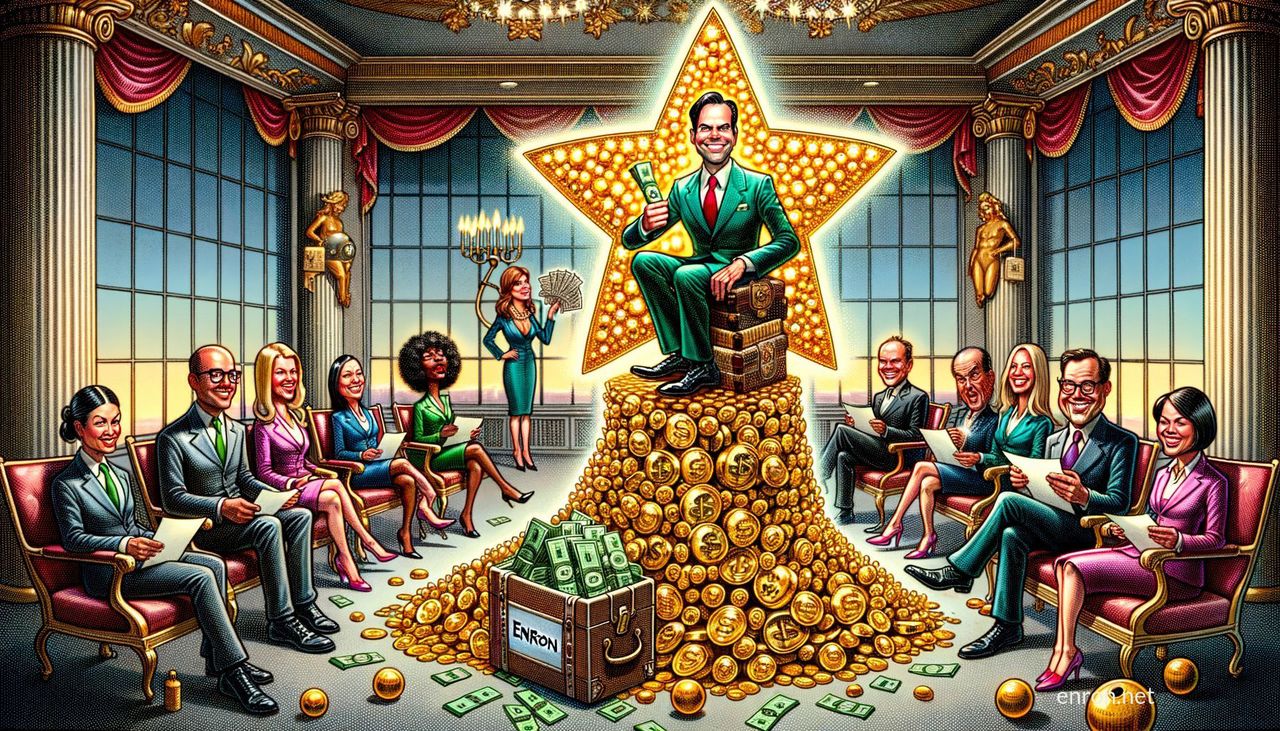Enron's Dangerous Talent Hunt

How Aggressive Recruitment of the Best and Brightest Led to Catastrophic Failure
Enron's Hiring Philosophy: Recruiting the Best and Brightest—At Any Cost
In the halcyon days of the 1990s, when dot-com fever was reaching a crescendo and companies were innovating at a breakneck pace, Enron Corporation, the Houston-based energy titan, stood as a paragon of corporate ambition and unbridled optimism. Known widely for its meteoric rise and catastrophic implosion, Enron's story has become a cautionary tale of corporate malfeasance. Yet, amid the narratives of fraud and deceit lies a fascinating, albeit flawed, chapter: Enron's hiring philosophy.
Attracting the Brightest Minds
Enron was not just another Fortune 500 company; it was an elite institution that exuded a magnetic pull on professionals across various industries. Under the leadership of CEO Kenneth Lay and COO Jeffrey Skilling, Enron sought to create an environment that would attract and retain the brightest minds in the business world. The company’s mantra, “recruit the best and the brightest—at any cost,” wasn't just a slogan but a manifesto that guided their human resources strategies.
From Ivy League halls to Silicon Valley's burgeoning tech mecca, Enron’s recruiters cast a wide net, targeting top-tier MBA graduates, engineers, financial wizards, and legal experts. Their aggressive approach often included lavish recruitment events, complete with luxurious dinners and high-stakes networking, signaling to potential hires that this was a company willing to invest heavily in its talent.
The Campus Invasion
Enron's talent acquisition campaign resembled a full-scale invasion of university campuses. Recruiters were not only looking for academic excellence but also for individuals embodying qualities such as risk-taking, an entrepreneurial spirit, and a propensity to disrupt the status quo. Enron's campus presentations were nothing short of theatrical; they featured charismatic speakers, slick marketing materials, and compelling narratives of Enron’s role as an innovator in the energy sector.
However, the recruitment pitch extended beyond mere words. High salaries, generous signing bonuses, and comprehensive benefits packages sweetened the deal. Internships at Enron were coveted, often serving as a pipeline for full-time positions. Those who secured positions enjoyed a level of autonomy and responsibility uncommon for newcomers, designed to make them feel indispensable from the outset.
The Allure of Enron's Prestige
Enron cultivated an image of prestige, a place where only the crème de la crème would thrive. This allure was reinforced by the company’s Houston headquarters, Enron Center, a gleaming high-rise that symbolized progress and modernity. Employees were drawn to the promise of working at the cutting edge, in a dynamic culture that championed innovation and bristled with competitive energy.
The company’s prestigious status extended beyond its corporate offices. Enron invested heavily in branding, creating an image not merely as an energy provider but as a forward-thinking technological innovator. This brand allure extended to sectors far removed from energy, positioning Enron as a coveted career destination for top talent from a variety of fields.
A Competitive—and Cutthroat—Environment
Inside Enron’s walls, the reality of their hiring philosophy took shape in a highly competitive, and sometimes cutthroat, work environment. Skilling introduced a system known as the 'rank and yank,' wherein employees were rigorously evaluated and categorized into top performers, average performers, and underperformers. The bottom 15% were at constant risk of being shown the door, regardless of their tenure or contributions.
This brutal performance appraisal system was designed to maintain a high-octane atmosphere, pushing employees to continuously outdo themselves and each other. It fostered an environment ripe for innovation but also wrought with paranoia. Employees, conscious of the ever-looming specter of termination, often resorted to aggressive tactics to ensure they remained in the upper echelons of the ranking system.
The Consequences of Unchecked Ambition
The downside of Enron’s relentless pursuit of excellence was a culture that rewarded short-term achievements often at the expense of ethical considerations and long-term sustainability. The immense pressure to perform and deliver results incentivized risk-taking behavior, and in some cases, outright misconduct.
As Enron's financial woes deepened, the same high-caliber employees who were once celebrated for their brilliance found themselves entangled in the deceptive practices that led to the company's downfall. The same innovative zeal that once made Enron an energy industry titan had become co-opted into a tool for financial manipulation and fraud.
The Human Cost
The story of Enron’s hiring practices isn’t merely one of corporate strategy gone awry. It is also a human drama involving ambitious and talented individuals whose careers and lives were forever altered by their association with the company. Many former employees faced significant challenges post-Enron, with their professional reputations tainted and their personal lives destabilized by the scandal.
Some, however, used the experience as a catalyst for introspection and growth, channeling their skills into new ventures that sought to avoid the ethical pitfalls they had previously encountered. Alumni from Enron can now be found dispersed across various industries, carrying with them lessons hard-learned from one of the most infamous corporate collapses in history.
Wrap-Up: A Legacy of Talent and Tragedy
Enron’s hiring philosophy encapsulated the best and worst of corporate ambition. The company’s aggressive recruitment tactics and emphasis on attracting top-tier talent created a workforce capable of groundbreaking innovation. However, these very same strategies also fostered a toxic work environment that prioritized short-term gains over long-term integrity, ultimately contributing to Enron's collapse.
As a case study in human resources and corporate culture, the Enron saga provides invaluable insights into the potential perils of prioritizing talent acquisition without equally rigorous ethical safeguards. The legacy of Enron’s hiring practices is a complex tapestry of brilliance and tragedy, offering both a warning and a lesson to future generations of corporate leaders.